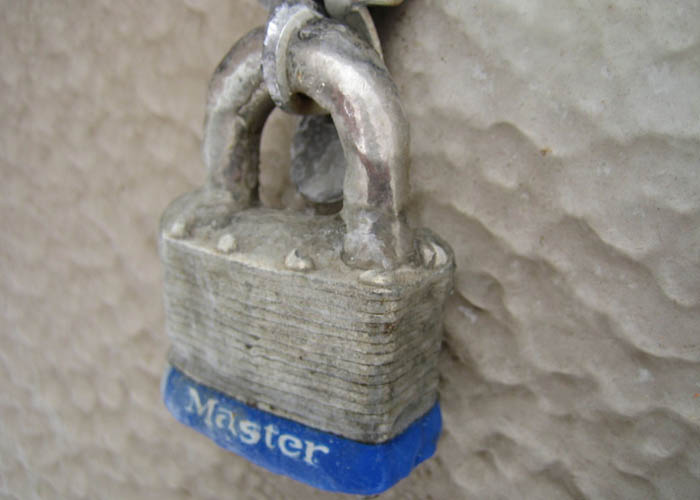
These days a lot of people call me with questions about locks, most of them when they are in some sort of trouble….
Yesterday was no exception. An old friend (who lives far away) called me because his neighbor had a problem with his lock. Not strange if you keep in mind it’s really cold here now and there is a thick layer of snow covering the Netherlands. This neighbor had his house well protected and was using a LIPS OCTRO to lock his house (15 pin dimple lock). And now because of the cold the lock would not open anymore. They did notice the key went in and out the lock smoothly. So they tried heating the key with a lighter and keep the heated key in the lock for some time, yet that did not work. And now they called me for advice.
I did gave them advice but to be honnest that did not open the lock. And a couple of hours later I received a text message with the full story. And I will tell you the details in one or two days.
My question to you is: what would you have advised him to do (or what questions would you have asked)?
* Update: Tom gave the correct answer in the comments …

I would have told him to go to the hardware store and buy some anti-freeze.
Probably not a good idea. but it seems the most logical solution.
had that happen to me the other day, good thing I had a lighter near by and melted the ice out of it.
Given key insertion went smoothly, it doesn’t seem pins stacks got stuck due to freezing. Could be the case that the lock has some passive pins that need to be able to be pushed back into the cylinder and that those are frozen. Some more turning force should solve that and that’s typically the first thing people try 🙂
Since also heating the lock didn’t help, I would ask the following:
“Are you really, really sure that you’re standing at your own front door and that you’re trying the right key?”
(The front door question might seem silly, but in apartment buildings typically all floors and front doors look alike)
I would think if it was a euro profile cylinder, that maybe the cam wasn’t being pushed back far enough because of something that got in the way, or maybe it was frozen in place. Also, this lock does have some passive pins at the top of the keyway I believe, so I guess its possible they got stuck in an odd position and barred the lock from opening.
Tom figured it out! (well done!!)
This is the (translated) text message I received a couple of hours later:
“You will not believe this. He called in the locksmith and had all his locks replaced. Costs around 500 euro! And he just found out he was trying the wrong key all the time! Mwuhahahaha. Grtz, J.”
I’ve seen similar things happen on a few lockout calls I ran in the past.
Did your friend contact the locksmith who did the job to tell him that the work he did was unnecessary and demand a refund? Cos that’s what a lot of people in the United States will do. This kinda thing happened to the shop I worked at, at least once or twice every other month.
a heated key will quickly go cold and not transfer much heat to the lock, a mini torch will put much more heat where it will work best. Locks do freeze up, that masterlock in the photo can get rain inside through the loose shackle holes and this will become ice when the temperature drops.
Some products for deicing locks contain alcohol and graphite, the alcohol is supposed to melt the ice. I use the mini torch, its more of a sure thing. of course, you shouldn’t over use the torch, it would affect any lube that is in the lock and under extreme heating the springs could loose temper.
of course, make sure its the right key and the right door. ignorance can be cured, stupidity is untreatable.
Hi, Eyes_Only, Sorry I would never take locks back you never know what happened with it, it”s a security thing.
I will tell my customers before i replace there locks,
Gr. Jord
Jord, I do the same. It’s almost always the cheapest, nastiest and most worn out locks that the customer wants back, too! And as if you are going to take the now used locks back out the door and sell them to someone else?!
hi , i think he can boil some water , but it in a glass , then but the lock in the glass , the ice will milt down 😉
thank you , nice ste i like it , and can i be a member ? 🙂
External heating of a lock and/or applying antifreeze like alcohol or ethylene glycol will get you nowhere fast… and might do damage to the lock.
I learned a nifty trick that I’ve used on frozen automobile door locks:
Unfold a paper-clip and insert the wire into the keyway… then use a lighter to heat the remaining exposed portion of the paper-clip.
Sometimes you can not find boil water.
So the easiest way to heat the lock is to piss on it